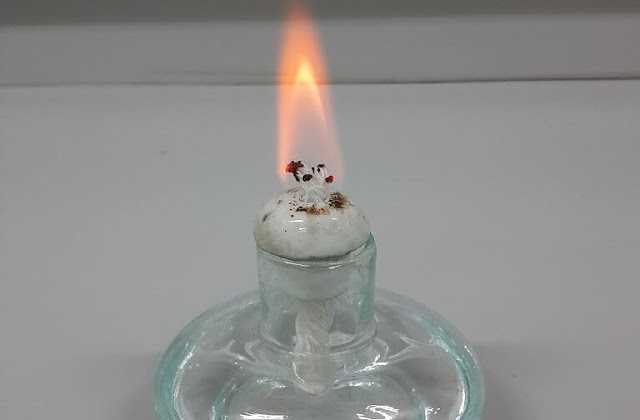Alcohol as IC Engine Fuel - Advantages and Disadvantages of Alcohol Fuels

Introduction to alcohol fuels
Alcohol is the one of the main liquid fuel alternative to the gasoline in combustion engines. Alcohol fuels are attractive because they can be obtained from nature as well as it can manufacture very easily. The methanol, ethanol, propanol, and butanol are the main type of alcohol fuel. In which ethanol is the most widely used alcohol because of its abundance and leas toxicity. More complex alcohol is not popular as fuel because they are not commercially viable.In theory, the alcohol is get completely oxidized in the engine and get convert it into the carbon dioxide and water. But in reality, the alcohol burn incompletely and there will be many toxic by-products like carbon monoxide, aldehydes etc. The theoretical chemical reaction (oxidization) happening to the alcohol fuels is given below

Advantages of alcohol as fuels
- Abundance in availability; obtained naturally and synthetically.
- Reduce the dependence fossil fuels.
- Emission is very low when compared to a petrol engine.
- Alcohol is ultraclean and sulphur free.
- Alcohol has high flame speed.
- Alcohol contains oxygen, so it requires less amount of air for stoichiometric combustion.
- Alcohol possesses high latent heat of vaporization, which results in low intake temperature. This reduces the work input of compression stroke and increases volumetric efficiency.
- Alcohol possesses high octane number, it can run high efficiently by high compression ratio.
- The combustion of alcohol gives more moles of exhaust gas, which results in more pressure and power in the expansion stroke.
Disadvantages of alcohol fuels
- Low calorific value, almost half of that of gasoline. For equal thermal efficiency more volume alcohol is required.
- Alcohol fuels have poor ignition characteristics.
- Alcohols are hygroscopic, absorb water content from the air. That increase the difficulty of transportation and storage.
- High chance of vapor lock in fuel delivery system.
- Aldehydes are one of the by-products of incomplete combustion of alcohol. The aldehyde emission would be serious when as much alcohol is consumed as gasoline.
- Danger of storage tank due to the low vapour pressure of alcohols. A simple air leak can create a combustible mixture.
- The low vapour pressure also results the poor cold weather starting characteristics.
- Alcohol produces invisible flames, which is considered as dangerous in fuel handling. This problem can be overcome by adding fuel additives.
- Lower exhaust temperature results longer time to heat the catalytic converter. Catalytic converter takes some time to get its efficient operating temperature.
- Alcohol is more corrosive on copper, brass, aluminium etc. this cause deteriorate action on engine, gasket, fuel line and fuel tank. This put some restriction (selection of material) in the engine design and manufacturing process.
- The strong odor alcohol cause headaches, dizziness, and many people find it is offensive.
- The alcohol fuel production by fermentation of biomass like corn (bioalcohols) may alter the food production principles.

